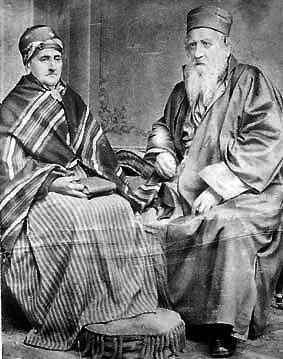It is not permitted to use sound amplifiers on Shabbat. Some rabbis consider it a Biblical prohibition, and others a Rabbinical restriction. This prohibition includes the usage of sound amplifiers, even if they were turned on or activated before shabbat. Therefore, telephones, microphones and other devices that amplify or transmit sound are not allowed on Shabbat (Except, obviously, for a case of an emergency like giving birth, sickness, a security threat, etc.)
What about hearing aids? Those small electronic apparatus that amplifies sound and are worn in the ear to compensate for impaired hearing.
Some rabbis are opposed to its usage because they consider that they work following the same principle as sound amplifiers. (not by coincidence, the rabbis that forbid the use of hearing aids hold that amplifying sound is forbidden by Biblical, not by Rabbinical law). However, most rabbis in our day, Sephardim and Ashkenazim, authorize wearing hearing aids for those with impaired hearing. Still, the device has to be activated before Shabbat and when it is removed from the ear before sleep, it cannot be turned off, and during Shabbat the volume cannot be changed.
Modern rabbis understood that in the case of the hearing device the voice is not directed deliberately into the sound amplifier, as in the case of a telephone device or a microphone. The voice is naturally caught by the hearing device, and that type of action falls into the category of "gerama", which more or less means anindirect action ("an expected or unexpected forbidden result of a permitted action". falls under a different category, see for example this)
In this sense, the case of a hearing device is close to the case of an open intercom, activated before Shabbat. Still, most modern rabbis would not authorize the use of an intercom but in the case of an individual suffering from hearing impairment, the rabbis have authorized the use of a hearing device following the above mentioned conditions.
(Adapted from Penine Halakha, Rabbi Eliezer Melamed, Shabbat B, 16-18)
Shabbat Shalom!
Candle lighting in NYC: 7:41
Shabbat ends in NYC: 8:48
PROVING MEDIA BIAS,
from Prager Universtity
